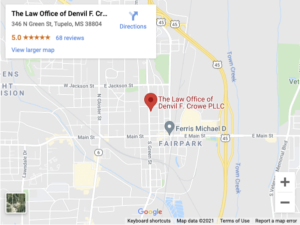Bankruptcy: First-Aid For Your Credit
One of the best things about getting a fresh start by filing bankruptcy is that it allows you a chance to rebuild your credit score. Why? Because the first step in re-building your credit is to get rid of some debt, which is what bankruptcy does best. With less debt, it’s easier to keep up-to-date on your remaining obligations, and makes it less likely you will fall behind. However, your credit score won’t improve as long as all your old, negative information is still listed with the credit reporting agencies.
All three major credit reporting agencies collected information about you before your bankruptcy, including balances due, late payments, charge-offs, and judgments. After your discharge, all these debts should be listed on your credit report as “included in BK” with a $0.00 balance. If they are not listed that way, they will appear to still be active accounts in collection status, which could limit your ability to get credit. Unfortunately, not all creditors update information after a bankruptcy discharge.
What Can You Do?
Plenty. A couple of months after your discharge, you should order credit reports to make sure all your discharged debts are listed as being included in your bankruptcy case and show only $0.00 balances. You can contact the three major credit reporting agencies at the following numbers:
Trans Union, tel. no. 1-800- 888-4213 or
Equifax, tel. no. 1-888-397-3742
Experian, tel. no. 1-800- 997-2493
Even easier, order your credit report online:
Trans Union: www.transunion.com
Equifax: www.equifax.com
Experian: www.experian.com
As you will see when you go to any of these websites, you can also order online a 3-in-1 credit report, which includes information from all three of these agencies, for about $29.95 (as of 12/19/04). Here are some other valuable tips to help you rebuild your credit rating after a bankruptcy discharge:
- Give Yourself Credit: The best way to rebuild your credit after a bankruptcy is to establish accounts that will report positive information on you. Get a single credit card with a small credit limit, use it very sparingly and pay the entire balance every month before the due date.
- Read the Small Print: After your discharge, you may get several offers for credit cards and other loans. Know what you’re getting into before you accept these offers. Make sure you understand the interest rate, fees, and expected payments before you open a new credit account.
- Prove It: Even after your debts are discharged, you may need proof that you don’t owe these creditors any more. Your attorney should have provided you with a copy of all the papers filed in your bankruptcy case, so keep these papers with your other important papers and documents, and don’t give away your only copy. You can use these documents to prove that you filed bankruptcy, which debts were included in your filing, and that you got your bankruptcy discharge.
- Pay on Time: Most credit cards and utilities report late payments to credit reporting agencies. After you file bankruptcy, if you make late payments every month, potential lenders will continue to see you as a poor credit risk. Also, most credit cards add a late fee whenever you’re late with a payment. Avoid late fees and reports of late payments by paying your accounts in full before the due date.



